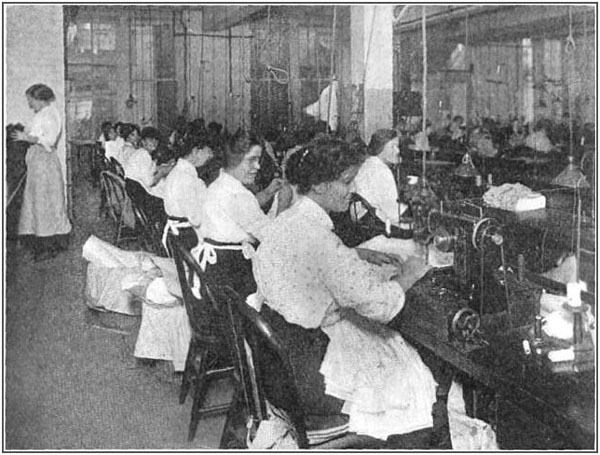Shit, was that classist? Okay. I'm going to beat it round the head with my ABILITY TO READ FUCKING WIKIPEDIA.
"What was the most important technological invention of the last four hundred years?" asked the lecturer, back in English Social History 1851-1991. "The spinning jenny!" said one dude, who was very into Marxism and the Industrial Revolution. "The internet!" piped up another, who clearly had his own website on Geocities back in the 90s and was so proud of himself for thinking outside the box.
"Would any women like to make a suggestion?", Mr Lecturer asked. I grinned. I was going to like this class.
"The pill?" I proffered. "Or the washing machine?"
Southampton City Council paid a giddy fortune for me to get educamacated, and I took on a hefty wallop of debt for the same reason, and from my perspective, it was all worth it just for that one moment in a cramped, musty corner of a converted Georgian townhouse. We beamed at each other in a smug haze of humanities joy, silently congratulating each other on being at least six times cleverer than anyone else in the room. It was ace.
So yeah, the washing machine probably had more impact on society than the internet. But saying things like
"Rather than spend their time washing clothes, women could go out and do more productive things. Basically, it has doubled the workforce."displays not only a racist, classist conception of "women" as a category, but also a basic lack of appreciation of actual historical facts. When people say "women" didn't work before the fifties (or 1939, or 1914, or whatever arbitrary date you're throwing at me) they mean middle class white women didn't work.
Poor women, which, then even more than now, included virtually all women of colour, have always had to work. It wasn't a choice between sitting at home in a Feminine Mystique nembutal haze or throwing off domestic shackles to take up a fulfilling career in advertising or whatever - it was a choice between shitty, back-breaking, poorly paid work, or your kids not eating.
Rather than spend their time washing clothes... do you really think that middle-class and aristocratic white women scrubbed their own knickers? Come on. They hired poor women to do it for them, as well as light their fires, swab their floors, cook their meals and raise their kids. Hundreds of thousands of working class women made their living this way - before and after marriage - because there was no other option.
 Let me take you on a whistlestop tour of female engagement in the British workforce. Back in ye olde medieval times, they worked on the land; with the rise of cottage industry, the home and the workplace were one and the same, and women worked as weavers and candle makers and cobblers and locksmiths and in dozens of other trades. Women dominated the factory workforce during the early years of the Industrial Revolution. Up until the Second World War, women also made up the bulk of domestic workers, before inventions like the washing machine - oh hi! - radically reduced the availability of jobs in this area. Even before this, more women chose factory work when it was available (particularly in war time) due to the greater freedoms and higher wages it offered. Particularly from turn of the 20th century, women also worked in shops, as secretaries, as waitresses.
Let me take you on a whistlestop tour of female engagement in the British workforce. Back in ye olde medieval times, they worked on the land; with the rise of cottage industry, the home and the workplace were one and the same, and women worked as weavers and candle makers and cobblers and locksmiths and in dozens of other trades. Women dominated the factory workforce during the early years of the Industrial Revolution. Up until the Second World War, women also made up the bulk of domestic workers, before inventions like the washing machine - oh hi! - radically reduced the availability of jobs in this area. Even before this, more women chose factory work when it was available (particularly in war time) due to the greater freedoms and higher wages it offered. Particularly from turn of the 20th century, women also worked in shops, as secretaries, as waitresses.Obviously they were mostly forced into the more menial, lower paid end of every industry, and paid less than men for identical work, because sexism. Bit like today, really.
Oh yeah, and you'd better clarify that you're talking about work outside the home, or are you saying that raising kids and scrubbing floors and feeding families and growing food and making clothes and washing huge tracts of fabric by hand only counts as work if someone's willing to pay you a pittance for it? Really?
What people really mean when they talk about Women Working Outside The Home is women getting fancy white collar professional work - fields like law and medicine which didn't open up to women as a class until much later. (For more on how traditionally female fields of healing and midwifery were taken over by the chaps, who, centuries later, deigned to let the ladies back into 'their' field, try Barbara Ehrenreich's For Her Own Good.)
Claiming that women as a class didn't work before some kindly gentleman rocked up to liberate them with his exciting new labour-saving washing machine is to ignore vast swathes of historical reality. It reduces the millions of women who were active in the workforce, and in the trade union movement, to footnotes in the important business of Dude History. And it's just not true.
No comments:
Post a Comment